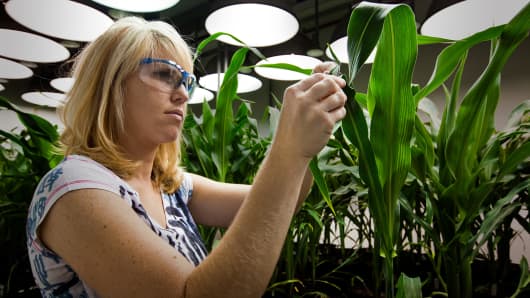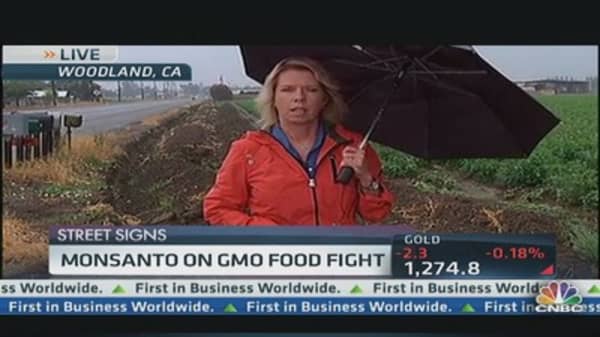In an unprecedented partnership, the major seed and crop science companies have come together to launch a website hoping to improve the image of genetically-engineered crops.
GMOAnswers.com went live on Monday, serving up data about the industry, answering questions from the public, and linking to studies that claim no harmful effects from altering a crop's DNA.
Monsanto, DuPont, Dow AgroSciences, Syngenta, BASF and Bayer CropScience are all behind the venture as members of the Biotechnology Industry Organization.
So-called GMO seeds accounted for 35 percent of the $34 billion global commercial seed business last year, according to the International Service for the Acquisition of Agri-biotech Applications.
However, Europe has all but banned crops grown from GMO seeds, and there's growing resistance to them in the U.S., where nearly all corn and soybeans used to feed livestock have been modified.
In response, the industry is no longer avoiding the "GMO" acronym, instead putting it front and center of its campaign. As CNBC reported last month, the biggest threat to the industry may be efforts in different states to force the labeling of food products with GMO ingredients.
"Food is personal, so we want to open the door for personal discussions," said GMO Answers spokeswoman Cathleen Enright. "We recognize we haven't done the best job communicating about GMOs—what they are, how they are developed, food safety information—the science, data and processes."




